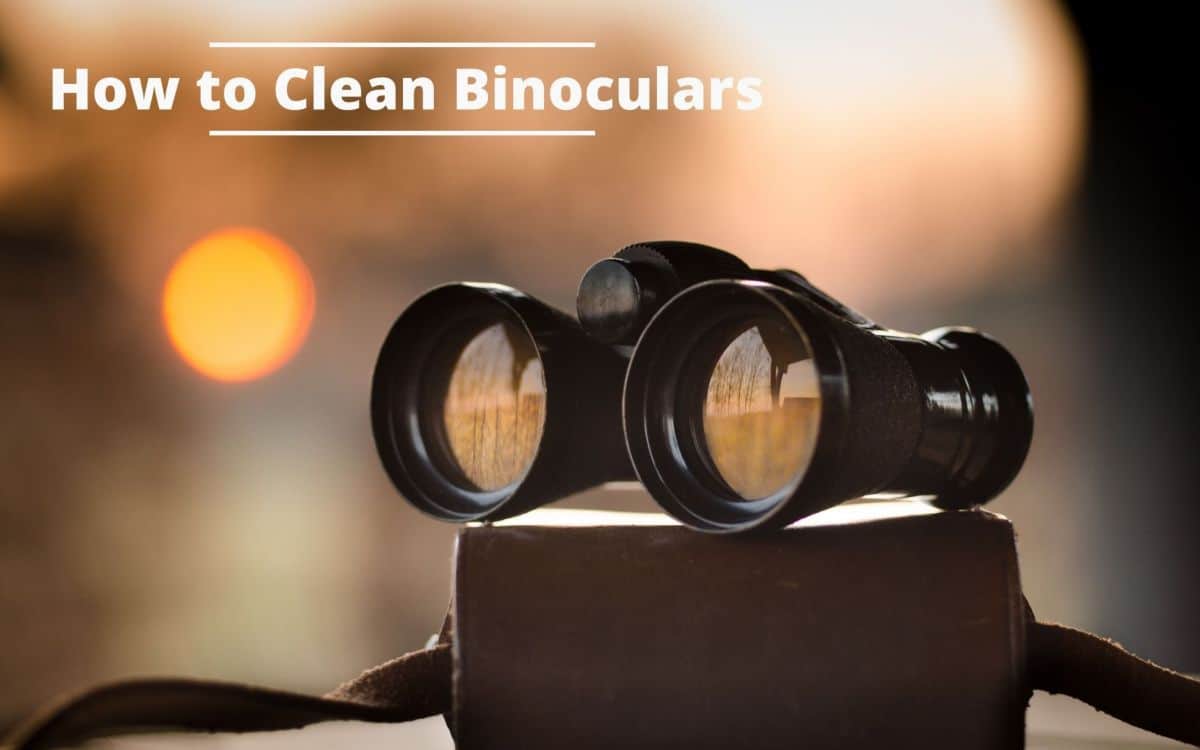When cleaning your binoculars, you should focus on the metal parts and lenses. Wipe them in a circular motion using a microfiber cleaning cloth or soft lens wipe. Remove the oil from the lens by using the lens cleaner liquid.
Protect your binoculars by bringing a padded storage bag and use durable straps to prevent them from falling on the ground.
When storing you binoculars, always place them in a dry and cool place. Finally, avoid leaving them under direct sunlight or in the rain as it may result in damages to the optics.
One equipment that is commonly packed by hikers is an binoculars. If you don’t know what those are, they are two telescopes that can be utilized simultaneously by both of your eyes.
This kind of equipment requires some maintenance so it can be used for a long time. Of course, any stuff or gear you own needs to be taken care of to extend its lifetime, and even improve its performance.
Now, let’s proceed with how to take care of your binoculars. Below, we will be talking about important points you need to look at when cleaning and protecting your binoculars.
Binoculars are handy when you’re outdoors because they allow you to see clearly within a long-range while keeping your distance. If you’re planning to get this equipment for yourself, we have a few recommendations of the best binoculars for hiking.
Why do you need to clean your binoculars?
No matter how expensive and durable your binoculars are, it will be a waste of money if you clumsily operate them. Without cleaning and protecting them, there is a huge possibility that they will get damaged or decrease in quality and performance. You may not want to lose this gear early as it is very helpful on your hiking adventures.
What are the cons of unclean or unmaintained binoculars?
Our campers usually use their binoculars continuously since we are going on different adventures to test or evaluate camping-related products. However, some people just utilize these occasionally, which results in them storing their binoculars for a long time.
Though most of us expect them to be protected inside the box, mold can form on the binoculars’ glass due to changes in temperatures. One of our campers actually said they had a hard time removing the mold from their equipment.
Aside from mold, grease, insects, dust, and moisture can enter and form when you store your binoculars.
Be careful when cleaning
In some occurrences, you should clean your binoculars quickly. Although, we strongly advise you to be vigilant while cleaning your equipment. Binoculars are made with materials that can be easily damaged when roughly handled, especially the optics. So whenever you wipe the hard stains, do not put too much force or pressure, as it may result in cracks or breakage.
Also, avoid using harsh or dry wipes on the lenses, or strong cleaning liquids. It can deform and damage any parts of the binoculars that are not capable of handling such chemicals. Instead, use the proper lens cleaning liquid that came with the binoculars when you bought them.
Tips on how to clean your binoculars
Binoculars are commonly exposed to different weather and temperatures. Even if you are using them frequently, they are more susceptible to dirt and any stains that may come from your hand. Let’s enumerate the ways to clean your binoculars:
-
Clean the metal parts
Wipe all of the metal parts of the binoculars to remove the stains and grimes. We suggest you invert the position to easily drop the dust while cleaning them. Be careful because you may accidentally drop them in the process.
-
Wipe the lens
The lens is the most significant part of the binoculars, so wipe it regularly in a round motion. Thicken your cleaning tissue to prevent the sweat or oil from your hands from dripping onto the lens.
-
Remove the oil from the lens
If the oil is visible and hard to remove, use the lens cleaner, then wipe the lens continuously until the oil is fully removed.
-
Remove the grease
You can use a moist cloth on the rubber parts or some silicon spray, then wipe it.
-
Remove the dirt inside the lenses
Look for an expert to detach the parts for you to be able to clean inside the lens. Do not open the parts of your binoculars unless you have a background in this area.
When you buy binoculars, you need to have a background of their specs. This will help you choose the equipment that will suit your needs and preferences. To assist you in this task, check out our article that details everything you need to know about binoculars.
Equipment to clean your binoculars
We are generally using different kinds of cleaning kits for our equipment, but we should be careful as it may result in some scratches. These are some of the cleaning apparatus binoculars usually require:
- A soft brush. Brushes can clear off the dust or dirt on the areas of the binoculars you can’t reach.
- A lens cleaning tissue. A commonly soft wipe can also be used.
- A blower or mini vacuum cleaner. It can remove the dirt without touching the surface of your binoculars.
- A microfiber cleaning cloth. This is best for the lenses since it will not scratch the optics.
- A spray bottle. You can use this to rinse the dirt off the optics, but beware if your binoculars are not waterproof or water-resistant.
How to protect your binoculars?
Even if you regularly clean your binoculars, you still need to protect them. Without caring for your equipment, it will be even more vulnerable to damages. So what should you remember when protecting your binoculars? The following are our suggestions:
-
Planning to buy binoculars
If you are still in the middle of planning to get one unit of binoculars, you should bear in mind where you are going to use them. This is a great factor to consider because where you are going and whether rain is consistent there or not can affect the equipment. In some cases, you may need waterproof ones. Paying attention to this can avoid damages to your binoculars.
-
Be attentive to the place
Depending on the places you are considering going to, it may not be prudent to bring your binoculars. Always wonder whether there is a high possibility that you may drop your binoculars at a specific place, as dropping them can break your equipment. Thus, it is best to be cautious.
-
Use the strap
You probably noticed that most binoculars are usually hung by the user around their neck. It is not only for the convenience of use, but also to prevent them from falling. Your better be using a strap because it is very inconvenient when you need to use your binoculars, to go through your storage bag as they are still packed inside of it.
-
Look for a durable strap
If you are going to buy a strap, focus on its durability and capability. Some straps may have a weak hold of your binoculars, which can cause you to drop your equipment. Therefore, double-check every detail of the strap, including the locks that grasp the binoculars.
-
Use your lens caps
All binoculars have lens caps. These are used to protect the optics when you are not using them. Always use them if you are not actively using your binoculars to prevent scratches and damages on the lenses.
-
Always bring the storage bag
Binoculars come with storage bags that you can carry around, which is also one of the gears that can protect your equipment. Although you may have a strap, after using your binoculars, or when you are going to camp at night, there is a place for you to store them securely. That will prevent them from falling and will protect it from dirt coming from the surroundings.
-
Use your fold-down eyecups
Some binoculars bear this feature. It is very helpful to those who are wearing eyeglasses wherein their glasses will not become in contact with the optics. You should also fold these up when you are not using them.
-
Avoid leaving them in direct sunlight or under the rain
As we have previously mentioned, temperatures and weather can affect some parts of your binoculars. Thus, it is best to prevent it to regulate the quality. To do so, cover your binoculars when it’s raining because it can leak and stain the inner optics.
-
Keep it in a secure place
If you are just an occasional binoculars user, it means that you are not going to use them all of the time. It may take you a few months or even a year to take them out of storage. In such cases, it is advisable to clean or take them out regularly to prevent the formation of mold, dust, moisture, or the invasion of insects. Also, keep them in a dry storage area or put dehumidifiers to regulate the atmosphere. When storing them, inspect your cabinets or any storage to check if it has open holes as this allows insects or dust to enter the equipment.
-
Look for a professional
If you are facing problems with your equipment, do not repair it on your own, especially if you don’t have any background in the methods and parts, as it can lead to more damages. Instead, seek a professional or expert who can repair it.
-
Handle them with care
You should always treat your binoculars like your pet. You should not only use them, but you also need to take care of them properly. That will prevent you from experiencing disadvantages caused by careless methods of handling.
Conclusion
One of the items that may get neglected when it comes to cleaning and maintenance are your binoculars. Unlike your other outdoor equipment, such as your tent or your hiking shoes, binoculars don’t get used as often. But, this does not mean that they don’t require care. If you want your equipment to last, you need to maintain and clean them properly.
Always keep in mind that the best practices in taking care of your binoculars can stretch their lifespan. As you continuously maintain them, their quality and performance will retain. That is the most important thing about any equipment. You just need to clean and protect them to prevent damages. Treat your binoculars carefully to be able to use them on your next adventures.

